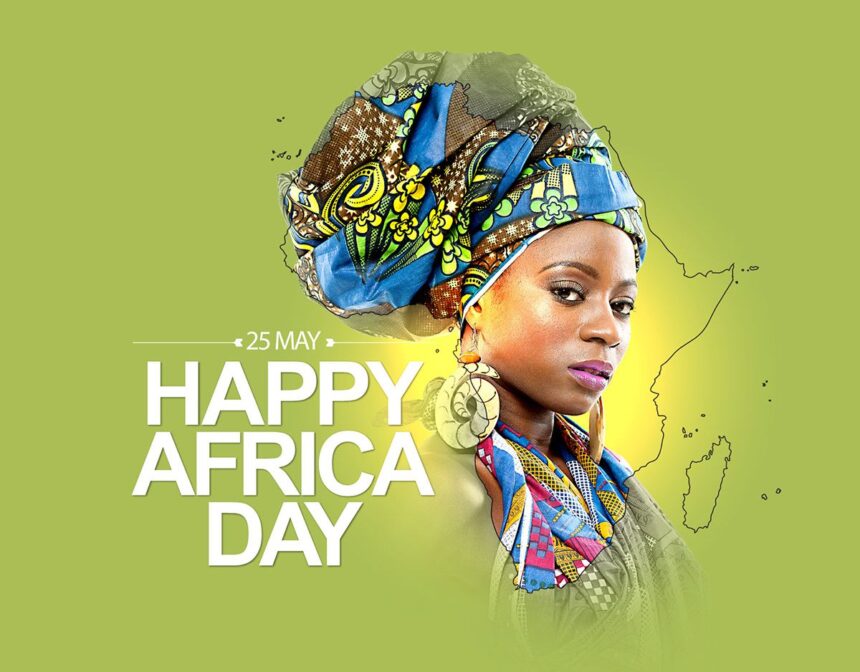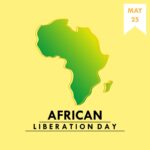🌍 Introduction: Africa Day—A Celebration of Unity, Hope, and Heritage
Every year on May 25, the entire continent of Africa and its diaspora celebrate Africa Day—a profound moment that commemorates the birth of continental unity, freedom, and self-determination.
- 🌍 Introduction: Africa Day—A Celebration of Unity, Hope, and Heritage
- 📜 History of Africa Day
- 📅 Timeline of Africa Day
- 📊 10 Eye-Opening Facts About Africa Day
- ❓ Africa Day FAQs
- ❓ What is Africa Day?
- ❓ Is Africa Day a public holiday?
- ❓ What is the difference between Africa Day and African Liberation Day?
- ❓ Who can celebrate Africa Day?
- ❓ What happens on Africa Day?
- 🌟 The Significance of Africa Day
- 🎉 How is Africa Day Celebrated?
- 💬 Wishing on Africa Day
- 📌 Important Points at a Glance
- 🧭 Importance in Life and Society
- 📅 Daily Life Impacts
- 🧠 Conclusion: Africa Day—The Spirit of a Rising Continent
While many may still associate Africa with struggles, Africa Day celebrates triumphs—triumphs over colonialism, injustice, and division. It’s not just a date; it’s a living spirit of resilience and pride, deeply rooted in Pan-Africanism and the dreams of generations.
Let us explore the rich history, powerful facts, timeline, observance, and the irreplaceable significance of Africa Day—and why it’s more relevant today than ever before.
📜 History of Africa Day
Africa Day marks the founding of the Organisation of African Unity (OAU) on May 25, 1963, in Addis Ababa, Ethiopia. The OAU was the first step toward a unified Africa, where 32 independent African nations came together to promote peace, solidarity, and liberation.
Key Historical Highlights:
1958: First Conference of Independent African States in Accra, Ghana – the seed of Pan-African unity was sown.
1960s: Decolonization gains momentum; dozens of countries gain independence.
1963: OAU founded with the vision of ending all colonialism and apartheid.
2002: The OAU evolves into the African Union (AU), a modern, active intergovernmental body focused on economic and political integration.
Africa Day was originally known as African Freedom Day or African Liberation Day and was rebranded to Africa Day after the formation of the OAU.
📅 Timeline of Africa Day
| Year | Event |
|---|---|
| 1958 | First African Freedom Day celebrated in Ghana |
| 1963 | OAU formed; Africa Day officially established |
| 1994 | End of apartheid in South Africa strengthens Africa Day’s meaning |
| 2002 | OAU becomes the African Union |
| 2023 | 60th anniversary of Africa Day celebrated continent-wide |
📊 10 Eye-Opening Facts About Africa Day
32 nations formed the OAU in 1963; today, 55 member states make up the African Union.
Africa is home to over 1.4 billion people, making it the second most populous continent.
There are over 2,000 languages spoken in Africa—it’s the most linguistically diverse continent on Earth.
The African Union’s Agenda 2063 envisions “an integrated, prosperous, and peaceful Africa, driven by its own citizens.”
Africa Day is observed not just in Africa, but also in the Caribbean, Europe, the U.S., and Latin America.
The AU flag’s green represents hope, gold for wealth, red for African people’s bloodshed, and white for peace.
Pan-Africanism, the philosophical bedrock of Africa Day, promotes unity across national, ethnic, and linguistic lines.
The African youth (under 25) make up nearly 60% of the population.
Several African countries observe Africa Day as a public holiday, including Ghana, Zimbabwe, Lesotho, Zambia, and more.
It’s a day used for dialogue, arts, political action, and unity-themed education.
❓ Africa Day FAQs
❓ What is Africa Day?
Africa Day is the annual commemoration of the founding of the OAU (now AU) on May 25, 1963. It celebrates African unity, freedom, culture, and decolonization.
❓ Is Africa Day a public holiday?
Yes, in many countries including Ghana, Zimbabwe, Lesotho, and Zambia, it is recognized as a public holiday.
❓ What is the difference between Africa Day and African Liberation Day?
Both stem from Pan-African ideals. African Liberation Day focuses on anti-colonial struggles, while Africa Day represents the unity of independent nations post-OAU formation.
❓ Who can celebrate Africa Day?
Everyone! While it honors African nations, the African diaspora and allies across the globe join in solidarity and celebration.
❓ What happens on Africa Day?
Africa Day features music concerts, political debates, academic forums, parades, and cultural exhibitions showcasing Africa’s diversity and heritage.
🌟 The Significance of Africa Day
🎯 Political Significance
Africa Day stands as a symbol of liberation—from colonial rule, apartheid, and foreign domination. It encourages the dream of a borderless, united Africa with shared governance and values.
🌱 Cultural Significance
From African fashion shows to ancestral music, the day celebrates pride in black identity, indigenous traditions, and spirituality often marginalized by colonial systems.
🤝 Social Unity
Africa Day reminds us that despite artificial borders and ethnic divisions, Africans are part of a global family bound by history, struggle, and hope.
💬 Global Awareness
It raises awareness about Africa’s untold stories—resilience, growth, art, innovation, youth leadership, and not just poverty or war.
🎉 How is Africa Day Celebrated?
| Mode of Observance | Description |
|---|---|
| 🥁 Cultural Parades | African attire, dances, and community feasts |
| 🎤 Public Talks | On Pan-Africanism, history, and future goals |
| 🧑🎓 Educational Forums | Debates, storytelling, and lectures |
| 🎶 Music & Art Fests | Celebrating African genres, crafts, and heritage |
| 📺 Documentaries | Airing of films on African leaders and movements |
| 📱 Social Media Campaigns | Using hashtags like #AfricaDay, #ProudlyAfrican, and #OneAfrica |
| 🕊️ Peace Rallies | Advocating for youth empowerment, democracy, and anti-xenophobia |
💬 Wishing on Africa Day
“Happy Africa Day! Here’s to a continent rich in culture, hope, and humanity.”
“Let us remember the past, shape the future, and walk united. Africa is rising.”
“On this day, may we embrace unity and celebrate our shared roots. One Africa, One Love.”
“Africa Day is more than a celebration—it’s a promise to honor the strength within us all.”
📌 Important Points at a Glance
Date: May 25
Founded: 1963 in Ethiopia
Founded By: Organisation of African Unity (OAU)
Now: Celebrated by African Union (AU)
Focus Areas: Unity, liberation, cultural pride, Pan-Africanism
Current Theme: Varies yearly (e.g., Youth Empowerment, Free Trade, Climate Justice)
🧭 Importance in Life and Society
🌍 In Our Lives
Promotes self-identity and cultural confidence.
Encourages learning and preserving African languages and traditions.
Fosters intergenerational pride and awareness.
🏛️ In Society
Supports decolonized education and Pan-African integration.
Fights against racism, economic exploitation, and xenophobia.
Provides a global stage to showcase African innovation, arts, and achievements.
📅 Daily Life Impacts
| Sector | Influence |
|---|---|
| 🎓 Education | Deeper understanding of African history and pride in origin |
| 👨👩👧 Family | Strengthens values around ancestral respect and unity |
| 🎭 Arts & Media | Expands platforms for African creators and voices |
| 💼 Economy | Highlights entrepreneurship and intra-African trade |
| 🌐 Global Relations | Reinforces Africa’s role in international diplomacy and sustainability |
🧠 Conclusion: Africa Day—The Spirit of a Rising Continent
Africa Day is not just a symbolic celebration—it’s a movement. It is a wake-up call for unity, for cultural revival, and for economic liberation. The dreams of Kwame Nkrumah, Haile Selassie, Nelson Mandela, and so many others still echo in the hearts of a new generation.
In a world that often divides us by race, border, or status, Africa Day reminds us of something eternal—the power of unity, the pride of identity, and the journey toward justice.
As you wear your Ankara, wave your Pan-African flag, or speak your native tongue—remember, you’re not just celebrating Africa—you’re carrying forward its future.
🌍 Happy Africa Day to all! Let’s rise, unite, and reclaim the African narrative with dignity and power.








